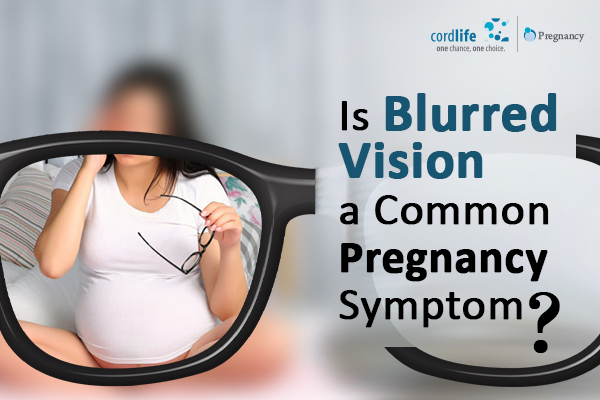Table of Contents
When people say having a child changes their lives, it is absolutely true. From the day you get pregnant, your body begins realigning and adjusting. Your hormones go into overdrive, and you start experiencing symptoms like nausea, food aversions, swollen legs, weight gain, backaches, etc. Although these are all more common and widely known symptoms, there is one symptom flying under the radar. It is blurred vision.
Yes, blurred vision is a common symptom experienced by many expectant mommies but spoken about by very few. There is no specific time when you’ll start experiencing this symptom. While it is non-threatening mainly and has no lasting effects on your vision, it can be a warning sign of an underlying complication or problem in some women, especially in cases where it is accompanied by high blood pressure.

You may experience blurred vision as a standalone symptom or together with other symptoms like nausea, headaches, dizziness, etc. Don’t be surprised if your eye power changes during pregnancy. However, no need to throw away your glasses or contacts as your prescription is likely to return to the original power post-delivery.
Causes of Blurred Vision
Hormones
Almost everything that happens to your body during pregnancy can be blamed on hormones. Once the hormones settle down after your baby is born, all the problems they caused also fade away. As hormones fluctuate the most during the middle and end of the pregnancy, you likely experience blurry vision around these times.
Fluid Retention
Just like the swelling you may see around your feet and hands, the tissues near your eyes swell up due to fluid buildup. This type of edema or water retention can lead to blurred vision.
Cornea Thickening
Corneal edema or swelling is a condition that affects the inner layers of the cornea. When there is a fluid buildup around the eye, the membranes pumping out the fluid from the cornea are unable to do so. This causes visual distortion and discomfort in the eye. You may experience this more prominently when you wake up in the morning, and the blurriness may reduce during the course of the day.
Dizziness
Rapid movements and shifts in position can lead to dizziness. This, in turn, causes blurred vision. You may notice that your vision blurs when you try to sit or stand up too quickly.
Dry Eyes
Another common cause of blurry vision is dry and irritable eyes. During pregnancy, tear production slows down drastically. This causes the eye to become dry and itchy. If you wear contact lenses, it can aggravate your eyes’ dryness and make the situation worse.
Field of Vision
You may experience a decrease in your peripheral vision or visual field defects. This is caused when previously asymptomatic pituitary adenoma or microadenomas grow bigger, causing a change in the field of vision, visual acuity, headaches, etc.
Gestational Diabetes
When the sugar levels in your blood are higher, it can lead to blurred vision, dizziness, headaches, etc. Gestational diabetes is a common phenomenon seen in overweight women, have diabetes before pregnancy or if diabetes runs in the family. If you haven’t been diagnosed yet, it is better to get your blood sugar checked if you are experiencing blurred vision.
Preeclampsia
It is a complication that occurs towards the end of the pregnancy. Preeclampsia not only causes blurred vision but also can cause high blood pressure, an increase in protein levels in urine, and damages to other organs. If untreated, it can be life-threatening to both mommy and baby.
Mostly the blurry vision should resolve within a month or so after your baby’s delivery. In case you still experience blurred vision after 6 months of delivery, then consult your doctor.
